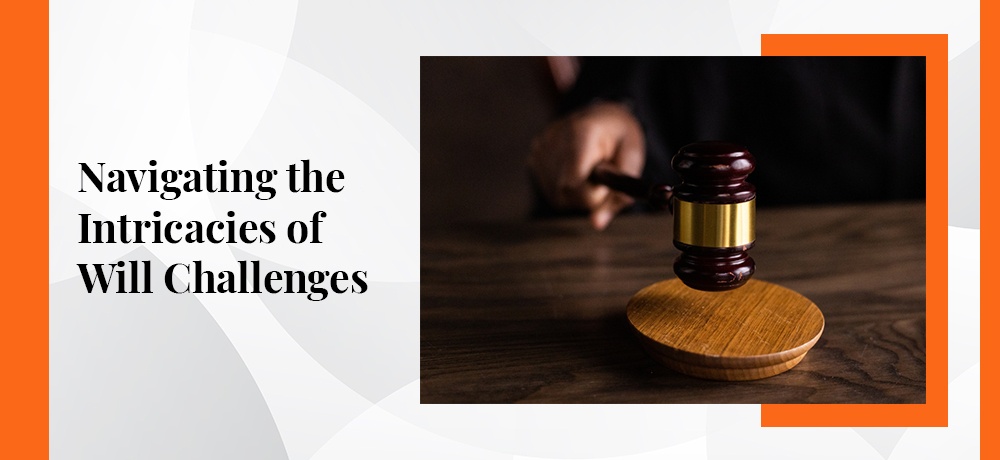Navigating the Intricacies of Will Challenges

When a loved one passes away, the last thing you want to deal with is a dispute over their will. Unfortunately, will challenges are not uncommon, and navigating the intricacies of these disputes can be overwhelming. In this comprehensive article, we will explore the various grounds for contesting a will, the claims that can be made by different parties, and the factors that make a will challenge successful. By understanding the complex landscape of will challenges, you can better prepare yourself to protect your loved one's wishes and your own interests.
Understanding Will Challenges
A will challenge occurs when someone contests the validity of a will, arguing that it does not accurately reflect the deceased's intentions or that it was not validly executed. In some cases, the challenging party may claim that they were unfairly excluded from the will or that the will was procured by undue influence. To successfully contest a will, the challenging party must prove their claim in court.
Claims by Married Spouses and Dependents
One common ground for contesting a will is a claim by a person who was financially dependent on the deceased and/or a legally married spouse of the deceased, asserting that the deceased did not make adequate provision for them in their will or estate. These claims are distinct from will challenges, as they do not attack the validity of the will itself but rather the adequacy of the provisions made for the claimant.
Left Out Business Partners and 'Contributors'
Another class of claims arises when people who contributed to the deceased's farm, business, or investment find themselves left out of the will. These claimants argue that they were promised something in return for their contribution, such as repayment, share of gains, or co-ownership, but that this promise was not fulfilled in the will. These claims are typically framed as 'constructive trust' or 'unjust enrichment' claims and, like claims by dependents, are not technically will challenges. The key to success in these cases lies in proving the original agreement that led the contributor to invest in the deceased's assets.
Grounds for Contesting a Will
There are several grounds on which a will can be contested, each of which requires the challenging party to demonstrate specific evidence in court. The most common grounds for contesting a will include:
Invalid Execution
A will may be challenged on the basis that it was not properly signed or witnessed by the testator (the deceased). This could mean that the will was not signed by the testator or that the signature was forged. Alternatively, the will may not have been witnessed or properly witnessed, which is a requirement for a valid will.
Revocation or Voiding
A will can be revoked by the testator, either by making a subsequent will or by physically destroying the original will. If a will is found to have been revoked, it cannot be enforced. In this case, the will is considered invalid, and the challenging party must prove that the will was, in fact, revoked or voided.
Undue Influence
Undue influence occurs when a beneficiary exerts undue pressure or control over the testator, particularly when the testator is vulnerable or infirm. Examples of undue influence include a caregiver or adult child manipulating the testator into leaving a disproportionate share of their estate to them. Proving undue influence can be difficult, as it often relies on circumstantial evidence and the challenging party's ability to demonstrate a pattern of manipulation.
Factors That Influence the Success of a Will Challenge
While will challenges can be difficult, there are several factors that can increase the likelihood of success. These include:
Quality of Evidence
The strength of the evidence presented in court is crucial to the success of a will challenge. Documentary evidence, such as emails, letters, or agreements, can significantly bolster a claim, especially in cases involving claims of undue influence or constructive trust.
Expert Testimony
In some cases, expert testimony can be instrumental in proving a claim. For example, a handwriting expert may be called upon to determine the authenticity of a signature on a will, or a medical expert may be asked to evaluate the testator's mental capacity at the time the will was executed.
Witness Testimony
Witness testimony can also play a significant role in a will challenge. Witnesses who can attest to the testator's intentions or the circumstances surrounding the will's execution may be able to provide crucial evidence in support of a claim.
Navigating the intricacies of will challenges can be a daunting task, but understanding the grounds for contesting a will, the claims that can be made by different parties, and the factors that contribute to a successful challenge can help you better draft your will and avoid leaving your loved ones unsure of the validity of your Wills. By consulting with an experienced attorney at Marwah Law, you can protect your loved one's wishes and your own interests in the face of a contested will.
Get in touch with us today
To learn more about what we do, please click here. To contact us, please click here or call us at (343) 804-0844.